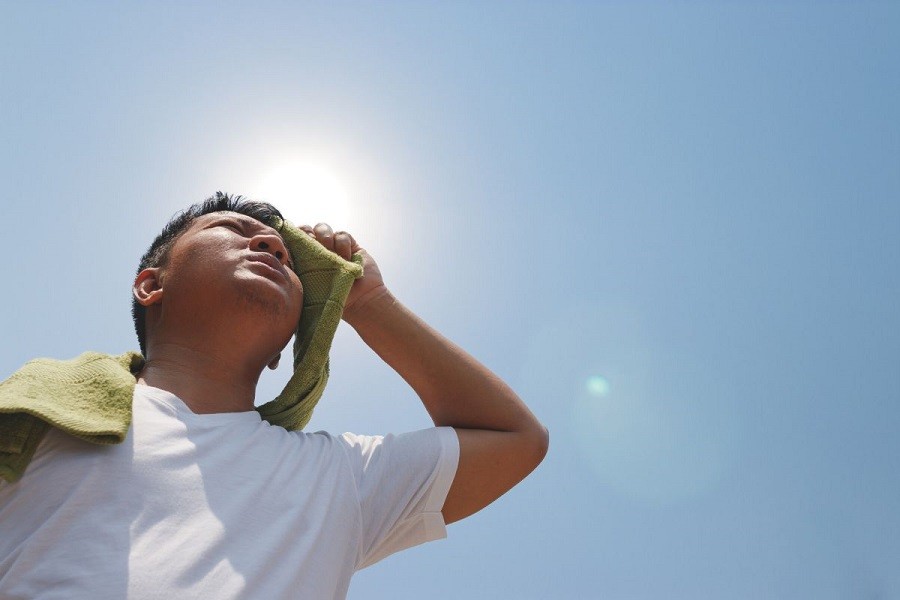There have been several instances of searing heatwaves claiming the lives of hundreds of people in North America, Canada and some European countries. Bangladesh, although having a tropical monsoon climate, has been witnessing temperature rise to record levels in recent years.
Even if heatwaves in Bangladesh have not yet been that threatening, what happens here is dehydration. Hot and humid Summer and Rainy seasons in Bangladesh make people relentlessly sweat causing dehydration in some cases.
What is dehydration?
Dehydration happens when our body loses more fluids than we are taking in. It is one of the common consequences of high temperatures. Without proper care, dehydration can be a serious problem and may even lead to death. The risk of serious complications is more in young children and older adults.
It is common knowledge that almost 60 per cent of our body mass is water. This is distributed in different compartments. Most of it (2/3rd) is inside our cells (intracellular). The rest is outside the cells (extracellular), of which 25 per cent is called intravascular as it is found within our blood vessels. In strictly medical terminology, dehydration refers to water depletion from intracellular compartments. However, experts usually call any loss of body water dehydration. This loss of water may or may not come with the loss of salts (sodium) from our body.
Causes
We lose water from our bodies when the amount we drink cannot keep up with the volume we lose. This is especially true during hot summer months when we are sweating profusely. As a result, our body loses salt and water rapidly.
Similarly, diarrhoea and vomiting can also be important causes of dehydration, particularly in children. Just a few decades ago, diarrhoea regularly claimed the lives of young children due to dehydration. Even today, there are reports of death from dehydration caused by diarrhoea or vomiting. Medications, like diuretics which are sometimes prescribed for hypertension, can cause dehydration by increasing water loss through urine.
Features of dehydration
The lack of water can manifest in a number of ways. It can result in slight headache, dizziness, lightheadedness, dryness of mouth and lips, low blood pressure, muscle cramps, etc. In severe cases, there are serious neurological symptoms, e.g. delirium, confusion. The urine can become concentrated and dark-coloured. Extreme dehydration can also precipitate heatstroke.
Types of dehydration
Dehydration can be mild, moderate or severe. In mild cases, there are only a few symptoms. Simply drinking more water, oral saline or electrolyte-containing drinks will be enough to manage it. Most of the dehydration we see is of the mild variety. Moderate dehydration is usually seen when there is an underlying issue, e.g. diarrhoea, vomiting. These patients need intravenous saline for survival. Severe dehydration usually characterised by progressive neurological symptom and require intensive care management.
Prevention and treatment
Treatment of dehydration is fluid administration. If we feel that we are getting dehydrated, we should always drink up more water or electrolyte-containing drink. If the condition does not improve, then we may need to see a physician and get intravenous saline to compensate for the water loss.
But the best thing we can do is making sure that dehydration does not happen. For that, we need to drink plenty of fluid and increase the amount when there is a high risk of dehydration.
The amount of fluid required will be different based on age, weight, activity level, health condition as well as other factors. The physicians could help us with that. As a rule of thumb, adults should have at least eight glasses of water per day. This should be distributed throughout the day.
Soda, alcohol and caffeinated drinks should be avoided as much as possible. Urine colour should be checked and if it seems dark or intense yellow, we need to drink more water until it’s cleared up.
Dehydration is a common but simple problem. Nevertheless, if not managed properly, it can be life-threatening. So drinking clean water in a proper amount should be a priority in daily life intake.
Imtiaz Ahmed completed MBBS from Dhaka Medical College.


